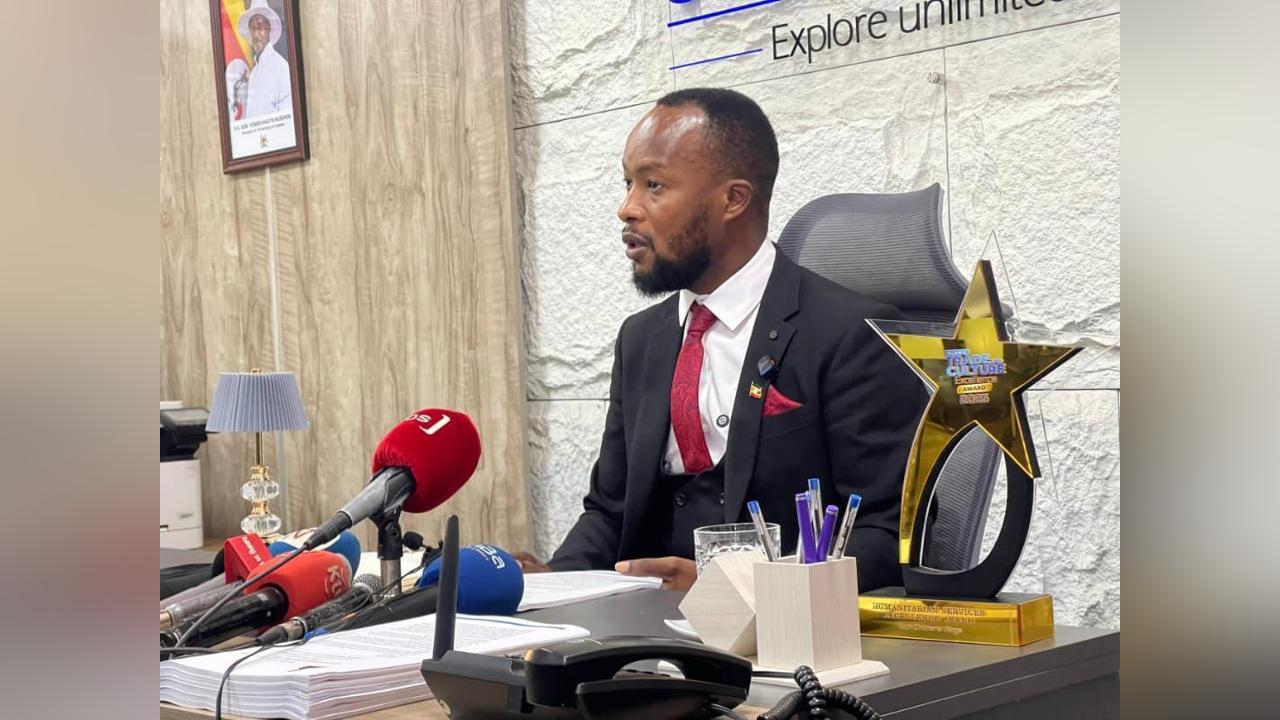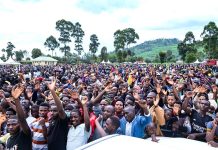Africa-Press – Uganda. Abraham Luzzi’s declaration that he will run a fully digital campaign for Kampala Central in the 2026 elections is both bold and, on paper, forward-thinking.
In a city grappling with traffic congestion, overstretched public spaces, and politically fatigued citizens, the idea of engaging voters through social media rather than street rallies, motorcades, and market-side speeches may seem efficient, modern, and even revolutionary.
While launching his manifesto and digital campaign today, Luzzi said he will rely entirely on social media platforms to engage voters and share his ideas. He argued that the digital space allows for efficient communication without interfering with people’s work schedules or the city’s daily operations.
Yet, Uganda’s electoral reality is far from Silicon Valley. Across Kampala, and especially in its informal settlements, voters are not swiping, scrolling, or digesting digital manifestos on tablets and laptops.
For many, a single 14-inch Hitachi TV watched communally is the primary source of information, often supplemented by NBS’s Amasengejje or local radios.
Digital platforms like TikTok, Instagram Reels, or X (Twitter) — the very tools Luzzi is banking on — are largely beyond the reach of the majority of the Kampala voters, either because of data costs, limited devices, or digital literacy gaps.
His sophisticated social media strategies risk reaching only the urban elite or niche middle-class segments who already follow politics closely.
Ugandan politics, particularly at the grassroots, has been overwhelmingly commercialised. In rural and semi-urban constituencies, just like the slums that are part of Kampala Central, the “sugar, salt, and soap” approach — literally handing out consumables, small cash, or infrastructural promises that immediately touch lives — defines the ideal candidate.
It’s a politics of tangible, immediate gratification. Even in Kampala, where residents may theoretically be more digitally connected, the electorate is heavily drawn from densely populated informal settlements, where communal television viewing or local radio dominates, and street-level interactions remain politically persuasive.
Luzzi’s “digital-only” pledge risks alienating the very voters who turn up en masse on polling day — the same ones for whom the tactile, relational, and transactional nature of campaigns is critical.
At the same time, Luzzi is attempting to carve a niche distinct from Uganda’s commercialised political culture. By avoiding physical rallies, handouts, and party machinery, he is implicitly rejecting transactional politics and emphasizing issue-based leadership.
He critiques Uganda’s party system for fostering division and encouraging voters to choose candidates on loyalty rather than capability. His platform promises accountability, fairness in rent, and anti-corruption measures — ideals that resonate with urban professionals and educated youth but may seem abstract to voters accustomed to immediate, visible benefits.
Addressing issues affecting Kampala residents, Luzzi pledged to tackle unfair rent charges imposed by landlords in the city if elected. He also vowed to fight corruption by ensuring strict punishment for those found guilty. According to him, corruption and negligence among current leaders have greatly hindered Kampala’s progress.
This tension raises a fundamental question: can a digital-first, issues-driven campaign succeed in a political environment where street-level visibility, personal touch, and material incentives dominate?
Luzzi faces the dual challenge of not only building digital reach but also translating online engagement into offline voter behaviour. While a strong social media strategy can amplify his message and appeal to Kampala’s middle-class voters, the reality is that the bulk of the electorate may never interact with him online, let alone understand his nuanced critiques of governance.
Moreover, his digital-only strategy risks ceding ground to more traditional campaigns, where NUP’s David Lewis Rubongoya or Minister Hajjat Minsa Kabanda can mobilize supporters through rallies, neighborhood visits, and the deeply entrenched mechanisms of Uganda’s commercialised politics.
Luzzi must either find ways to bridge the digital divide or risk being perceived as an aspirational candidate for the city’s few, rather than a representative of its many.
In essence, Luzzi’s campaign is a test case: can Uganda’s electoral culture accommodate the idea of digital-first politics in a society where political influence has long been measured in soap bars, market days, and public appearances?
Success may require creative hybrid approaches — leveraging social media to educate and mobilise, while maintaining some level of physical outreach to connect with voters who live far from the digital sphere.
Digital campaigning in Uganda is exciting, necessary, and inevitable, but Luzzi’s experiment exposes the friction between online innovation and a dusty, commercialised political reality. For Kampala Central, the electorate’s reception of his strategy may tell us as much about the limits of technology in politics as it does about the appetite for ideas over handouts.
For More News And Analysis About Uganda Follow Africa-Press






